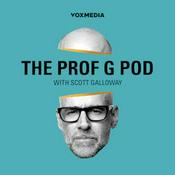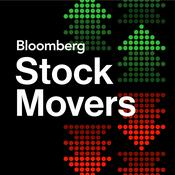Available Episodes
5 of 1190
- 2% of Americans are Homeless: America's Most Shameful Open SecretNumbers often tell the story best. Yesterday, we discussed today’s 95/5 reality in which 5% of Americans control 95% of the wealth. Today, in our conversation with Patrick Markee, author of Placeless, the key number is 2%. That’s the number of Americans who, on any given day, are homeless. But it’s a number, Markee insists, that doesn’t have to be. Mass homelessness, America’s most shameful open secret, is a modern phenomenon, he explains, triggered by Reagan’s neo-liberal policies. There’s nothing inevitable or necessary about it. And just as economic and political policy caused the crisis, it can also solve it. What’s most chilling is how normalized it’s become. Two-thirds of Americans are too young to remember a time when large numbers of people weren’t sleeping on sidewalks. In New York City alone, 35,000 children sleep in shelters every night—numbers not seen since the Great Depression. Future generations, Markee suggests, will look back at us the way we look back at those who tolerated slavery. How could we all have just walked on by? This is a public episode. If you'd like to discuss this with other subscribers or get access to bonus episodes, visit keenon.substack.com/subscribe--------50:15
- A Code RED For Humanity: Forget 80/20 - the 95/5 Rule of our AI AgeForget Pareto’s 80/20 rule. What AI is doing is producing a new rule in which 5% of society captures 95% of the value of this revolution. That Was The Week publisher Keith Teare calls this the “Great Compression”, describing it as the new math of our AI age. It’s creating a winner-take-most society of increasing inequality and outrage - the kind of situation which, historically, governments have stepped in to redistribute the rewards of a great technological leap forward. That isn’t happening today, however, thereby creating what Keith and I describe as a Code Red emergency for humanity. This is a public episode. If you'd like to discuss this with other subscribers or get access to bonus episodes, visit keenon.substack.com/subscribe--------41:53
- Why "Progress" is Ruling Class Propaganda: The Dangerous Idea that Built Civilization and is Now Destroying itIs the idea of “progress” the propaganda of the ruling class? Yes, according to Samuel Miller McDonald, author of Progress: How One Idea Built Civilization and Now Threatens to Destroy it. McDonald traces this “narrative formula” back 5,000 years to the first market empires in Mesopotamia—societies that were parasitic from the start, extracting from nature for profit and expansion. The Mesopotamian epic Epic of Gilgamesh, McDonald argues, is essentially a celebration of deforestation. Fast forward a few thousand years and modern industrialization didn’t corrupt this system; it supercharged it. His solution? Sortition, agroecology, and dissolving elite power. “I have more faith in the general public,” he tells me about a contemporary world dominated by what he sees as extractive billionaires like Bill Gates and Peter Thiel, “than in people who seek positions of power and control.” This is a public episode. If you'd like to discuss this with other subscribers or get access to bonus episodes, visit keenon.substack.com/subscribe--------50:37
- Two VCs, No Filter: The Naked Truth about Elon Musk and Sam AltmanThey certainly are an odd couple. Silicon Valley veterans Dave McClure and Aman Verjee have been friends and business partners for 25 years — first at PayPal, then at 500 Startups, and now at Practical Venture Capital. Yet they have quite different styles, personalities and, above all, politics. What they share, however, is an unvarnished take on the world — especially on the much mythologized Silicon Valley. In this refreshingly unfiltered conversation, they assess tech’s two most dominant titans: Sam Altman and Elon Musk. McClure describes Altman as someone he’d never want to face across a poker table — “there’s probably three layers of chess going on in his head.” Verjee breaks down the competitive psychology driving Musk as OpenAI’s valuation leapfrogs SpaceX. Plus Verjee makes sense of Google’s Gemini challenge to ChatGPT domination and McClure leaves us with one of his trademark blunt takes on Trump’s crypto conflicts. This is a public episode. If you'd like to discuss this with other subscribers or get access to bonus episodes, visit keenon.substack.com/subscribe--------40:51
- From Mongolia to Silicon Valley: A Venture Capitalist's American DreamIf you think the American Dream is dead, then you probably don’t know the story of Lu Zhang. Born in Mongolia and educated in China, Zhang came to Stanford as a graduate student, struck it rich as a young tech entrepreneur and is now managing partner of her own early-stage venture fund. In our conversation, Zhang makes a compelling case for why Silicon Valley remains the world’s most important innovation ecosystem—even as she warns that restrictive immigration policies threaten to strangle the very talent pipeline that made her remarkable success possible. She’s bullish on AI, bearish on energy infrastructure, and refreshingly candid about the capital market bubble that everyone in tech pretends doesn’t exist. So does Zhang really exist or is she a bot designed to promote the American Dream? She says she’s real. I believe her. Do you? This is a public episode. If you'd like to discuss this with other subscribers or get access to bonus episodes, visit keenon.substack.com/subscribe--------50:25
More Business podcasts
Trending Business podcasts
About Keen On America
Nobody asks sharper or more impertinent questions than Andrew Keen. In KEEN ON, Andrew cross-examines the world’s smartest people on politics, economics, history, the environment, and tech. If you want to make sense of our complex world, check out the daily questions and the answers on KEEN ON.
Named as one of the "100 most connected men" by GQ magazine, Andrew Keen is amongst the world's best-known technology and politics broadcasters and commentators. In addition to presenting KEEN ON, he is the host of the long-running show How To Fix Democracy and the author of four critically acclaimed books about the future, including the international bestselling CULT OF THE AMATEUR.
Keen On is free to listen to and will remain so. If you want to stay up-to-date on new episodes and support the show please subscribe to Andrew Keen’s Substack. Paid subscribers will soon be able to access exclusive content from our new series Keen On America. keenon.substack.com
Podcast websiteListen to Keen On America, The Diary Of A CEO with Steven Bartlett and many other podcasts from around the world with the radio.net app

Get the free radio.net app
- Stations and podcasts to bookmark
- Stream via Wi-Fi or Bluetooth
- Supports Carplay & Android Auto
- Many other app features
Get the free radio.net app
- Stations and podcasts to bookmark
- Stream via Wi-Fi or Bluetooth
- Supports Carplay & Android Auto
- Many other app features


Keen On America
Scan code,
download the app,
start listening.
download the app,
start listening.





































